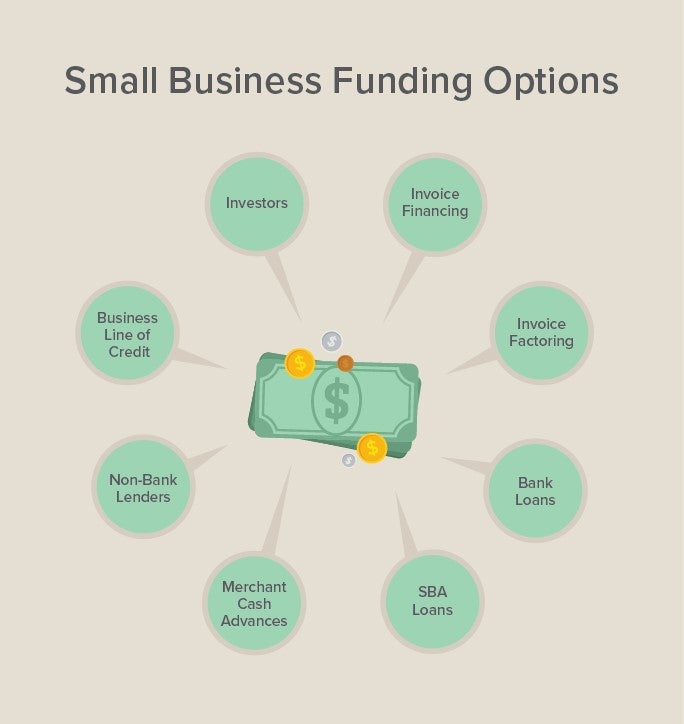
Starting a small business is like embarking on a thrilling adventure. You have a vision, a dream, and a plan. But just like any grand expedition, you need the right tools and resources to make it a reality. One of the most crucial tools? Funding. Without the right financial backing, your startup can quickly run out of steam. So, let's dive into the world of small business funding options for startups and explore the various paths you can take to secure the capital you need.
Understanding Startup Financing
Before we delve into the specifics, it's essential to understand what startup financing entails. Startup financing is the process of securing funds to launch and grow your business. It can come in various forms, from loans and grants to investments from angel investors and venture capital firms. Each option has its pros and cons, and choosing the right one depends on your business needs and goals.
Small Business Grants: Free Money for Your Startup
Small business grants are like the golden tickets of the startup world. They provide free money that you don't have to pay back. Governments, corporations, and non-profit organizations often offer these grants to support innovative ideas and foster economic growth.
Where to Find Small Business Grants
Finding the right grant can be a bit like searching for a needle in a haystack. However, there are several resources to help you in your quest. The U.S. Small Business Administration (SBA) is a great starting point. They offer a variety of grants and can guide you to other funding opportunities. Additionally, websites like Grants.gov and Foundation Center are valuable resources for finding grants tailored to your business.
How to Apply for Small Business Grants
Applying for a grant is a meticulous process. You'll need to provide detailed information about your business, your financial needs, and how you plan to use the funds. Be prepared to write a compelling proposal that clearly outlines your business plan and demonstrates why your startup deserves the grant.
Angel Investors: Your Guardian Angels in the Business World
Angel investors are high net worth individuals who provide financial backing to startups in exchange for equity. They are often successful entrepreneurs themselves and can offer valuable mentorship and industry connections.
Finding the Right Angel Investor
Finding an angel investor is like finding a business partner. You need someone who believes in your vision and is willing to take a risk on your startup. Networking is key here. Attend industry events, join entrepreneur groups, and leverage online platforms like AngelList to connect with potential investors.
What to Expect from an Angel Investor
Angel investors typically invest between $25,000 and $100,000 in exchange for a stake in your company. They may also require a seat on your board of directors and will expect regular updates on your progress. It's crucial to have a solid business plan and a clear understanding of your financial projections before approaching an angel investor.
Venture Capital: High Risk, High Reward
Venture capital firms are professional investment companies that manage funds for others and allocate them to startups with high growth potential. Unlike angel investors, venture capitalists invest larger sums of money and expect a significant return on investment.
The Pros and Cons of Venture Capital
Venture capital can provide the substantial funding you need to scale your business quickly. However, it comes with strings attached. Venture capitalists will take a significant equity stake in your company and may have a say in major business decisions. They also expect a high return on their investment, which can put pressure on you to grow rapidly.
How to Attract Venture Capital
Attracting venture capital requires a strong pitch and a compelling business plan. You'll need to demonstrate a clear path to profitability and show how your startup can disrupt the market. Networking is also crucial. Attend industry conferences, pitch competitions, and use platforms like Crunchbase to connect with venture capital firms.
Crowdfunding: The Power of the Crowd
Crowdfunding platforms allow you to raise funds from a large number of people, typically through online platforms. This can be a great way to validate your business idea and build a community of supporters.
Types of Crowdfunding
There are several types of crowdfunding, including rewards-based, equity, and debt crowdfunding. Rewards-based crowdfunding involves offering incentives to backers, while equity crowdfunding allows investors to buy shares in your company. Debt crowdfunding, also known as peer-to-peer lending, involves borrowing money from a group of investors.
How to Launch a Successful Crowdfunding Campaign
Launching a successful crowdfunding campaign requires careful planning. You'll need to create a compelling pitch video, set realistic funding goals, and offer attractive rewards. Platforms like Kickstarter and Indiegogo are popular choices for rewards-based crowdfunding, while Seedrs and Crowdcube are great for equity crowdfunding.
Other Small Business Funding Options
In addition to the options mentioned above, there are several other funding avenues you can explore. These include:
Small Business Loans
Small business loans are a traditional form of financing that involves borrowing money from a bank or financial institution. These loans typically require collateral and a good credit score. The SBA offers a variety of loan programs tailored to small businesses.
Friends and Family
Friends and family can be a valuable source of funding, especially in the early stages of your startup. However, it's important to approach this option with caution. Mixing business with personal relationships can be tricky, so make sure to set clear terms and expectations.
Business Incubators and Accelerators
Business incubators and accelerators provide funding, mentorship, and resources to help startups grow. These programs can be highly competitive, but they offer valuable support and networking opportunities.
Conclusion: Choosing the Right Funding Option for Your Startup
Securing funding for your startup is a critical step on your entrepreneurial journey. Whether you opt for small business grants, angel investors, venture capital, crowdfunding, or other options, it's essential to weigh the pros and cons and choose the path that aligns with your business goals.
Remember, funding is just one piece of the puzzle. Success also depends on your vision, your team, and your ability to execute. So, take the time to explore your options, do your research, and make informed decisions. Your startup's future depends on it.
FAQs
What is the difference between angel investors and venture capitalists?
- Angel investors are typically high net worth individuals who invest their own money in startups. Venture capitalists, on the other hand, manage funds for others and invest larger sums of money in exchange for a significant equity stake.
How do I know if my startup is eligible for a small business grant?
- Eligibility for small business grants varies depending on the grant program. Generally, you'll need to demonstrate a strong business plan, a clear need for funding, and how your startup will benefit the community or industry.
What are the risks of crowdfunding?
- Crowdfunding can be risky if you don't meet your funding goals or if you fail to deliver on your promises to backers. It's important to set realistic goals and have a solid plan for fulfilling your obligations.
How can I improve my chances of securing venture capital?
- To improve your chances of securing venture capital, you'll need a strong business plan, a compelling pitch, and a clear path to profitability. Networking and building relationships with venture capital firms can also increase your chances.
What should I consider before taking out a small business loan?
- Before taking out a small business loan, consider your ability to repay the loan, the interest rates, and any collateral requirements. It's also important to have a solid business plan and financial projections.


Posting Komentar